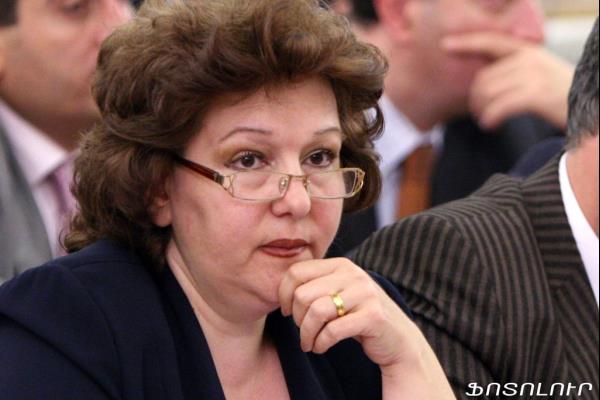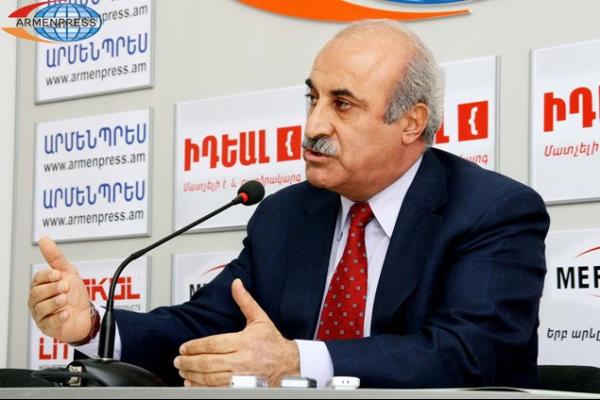Constitutional change supporters’ camp yesterday and today

A few days are left before the constitutional referendum. In the recent month, the proponents and opponents of the constitutional changes have been producing their arguments and counter-arguments, speaking about risks and advantages of the available Constitution and the offered bill, discussing advantages and shortcoming of the presidential and parliamentary governance. Some politicians, actively engaged in the “Yes to constitutional changes process, have been so much carried away by the propaganda, that they have completely forgotten about the position on the issue they adhered to some two-three years ago.
For example, Hermine Naghdalyan, a member of the Executive Council of the ruling Republican Party of Armenia (RPA) in the interview to the “De-Facto newspaper, on November 1, 2013, said:

“In 1991, the Republic of Armenia made a decision to be a semi-presidential republic. Nobody affirms that the semi-presidential form of ruling is ideal or that it is ideal for the Republic of Armenia, on the contrary, but in our opinion, this is the most efficient form of ruling for our country at the present stage of country’s development. Now we have unaccomplished political system, unfinished or “sleeping war, very unevenly developed country’s regions– plenty of factors, not promoting such change of the governance system.
Khosrov Harutyunyan, MP from the ruling Republican faction, told the “Aravot newspaper on November 8, 2012:

“One condition is required for transition to this model: political parties must be successful. However, at present, our parties are not transparent, accessible and tangible for the society, thus, it is untimely.
Here are Khosrov Harutyunyan’s several arguments, confirming his previous position regarding this issue:
1) the semi-presidential system in Armenia has justified itself;
2) the problems, existing in the country, namely: corruption, official power abuse, are not conditioned by one or another political, economic system;
3) it is dangerous to lay a burden of state governance on political parties from the national security point of view.
Another member of the National Assembly’s Republican faction, Naira Karapetyan noted in her interview to Slaq.am, on November 13, 2012:
“Frankly speaking, I don’t think we have the accomplished party system and established parliamentary traditions, allowing to make this transition legitimately. A serious politological analysis is not required here, suffice it to observe what happens with parties’ principles and political courses, as well as the basis, on which political associations are set up or split.
Let’s see how the parliament is formed at the present time. It seems a political norm becomes acceptable in our political life when a party complies a proportional party list, the fortune of which is decided individually after the elections. Very often a candidacy is withdrawn by force, ensuring places in this list for “guys, who are given votes. I don’t mean that the majoritarian system is better, I am just saying that there is such a risk in case of transfer to 100 percent proportional system elections’.
However, in August 2013, the abovementioned opponents of the parliamentary governance system in the country changed their position after Serzh Sargsyan (President of Armenia) had announced about his program of initiating constitutional changes. At the same time, all the above cited arguments are as topical as before.
Photo: Photolure, Armenpress, Serzh Davidoff



















